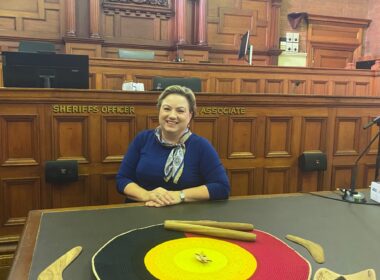Chief Justice Will Alstergren leads the Family Court and the Federal Circuit Court. As 2020 brings a fresh review into the workings of the high-stakes jurisdiction that tackles thousands of new cases each year, the Chief Justice has plenty on his plate. He reveals a bold agenda to clear the backlog, work closely with solicitors, and support litigants in their most stressful hour.
Both of your roles bring considerable responsibility. How difficult is managing such a broad jurisdiction?
It is challenging. When you have cases that are three or four years old, it is placing a direct burden on families in the most stressful time in their lives. We are looking really closely at what changes can be made to improve the system; currently there are too many delays. People are spending disproportionate amounts of money on legal fees – and it is disproportionate, especially when you consider how much they are actually fighting over. That pool of assets can quickly diminish when you factor in the time it takes and the delays in the litigation process.
What measures have you put in place to address the significant delays?
One of the biggest pieces of reform is the harmonisation of the Family Law Rules and the Federal Circuit Court of Australia Rules. This is the development of a single set of rules, forms and case management principles for family law and done by getting together a group of judges from both jurisdictions and an independent chair. Already there has been significant progress on the case management principles, and this is the first time in more than 20 years that a project like this has been achievable.
The second key piece of reform is increasing the role that registrars play in the dispute resolution process. Some judges have dockets of 400 to 600 cases. We have very well-qualified and skilled registrars who are able to do interim matters, alternative dispute resolution, and property cases.
There is currently a lot of attention on the family court, with the announcement of another inquiry. Does that sort of pressure take its toll?
The focus of the court should be on litigants. There is a lot of negativity [towards] the court at the moment and, as judges, we have to create a positive environment. I know the judges of the court have got such integrity and they really want to improve the system. We are working very, very firmly to make cases more effective and get them out of the system more quickly. I implore the government to see the urgency and necessity of increasing our resources.
What can solicitors do to ease the stress of the family court experience?
Solicitors do a wonderful job. I commend practitioners across the state for the skill and dedication they bring to their work. In terms of practical steps, it can be about making sure clients are prepared, that they turn up to callover, and that they have an open mind to settling as soon as possible – or, if it is appropriate, moving towards alternative dispute resolution. Identifying the best outcome for their client, and that could be through different forms of dispute resolution, such as arbitration or mediation.




